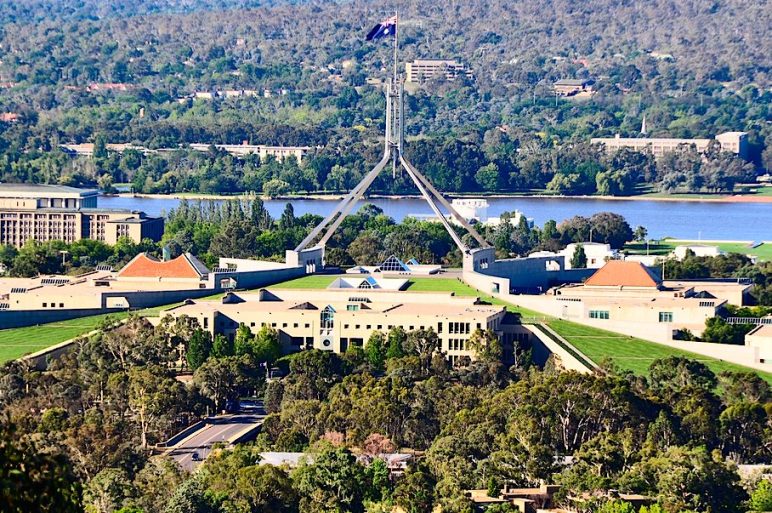Peak body the Australian Information Industry Association (AIIA) wants to government formed after the May federal election to create a new Cabinet level Minister for the Digital Economy.
AIIA CEO Ron Gauci said technology is an essential driver to economic growth, creating jobs and making the nation globally competitive.
While the Morrison government already has a Digital Economy minister in Senator Jane Hume, she’s also the minister for the country’s $3.5 trillion superannuation sector, as well as financial services and Women’s economic security.
The AIIA argues there’s now a greater need to better align and coordinate the various digital economy initiatives under one Minister and one portfolio. It proposal for a Minister of Government Services and the Digital Economy would see the Cabinet position tackle a range of expanded in responsibilities including:
-
Government digitisation services and whole of government architecture that is the role of the Digital Transformation Agency (DTA to remain and keep this responsibility but report to Minister)
-
Digital Identity and data sharing programmes that the DTA supports
-
The work of the Digital Economy Taskforce
-
Tech Regulation including cyber regulation for non-critical industries (as defined by CI SoNS)
-
The work of the Modernising Document Execution Taskforce and e-invoicing initiatives
-
The AIIA policy of the Made in the Australia Office that supports using government procurements to assist SME capabilities and create long term strategies to support Australian tech procurements
-
Government SME procurement reform and policies
-
Consumer Data Right policies
-
Coordinating role for digital skills initiatives
-
Critical liaison path between industry and defence around critical technologies initiatives
-
Quantum and AI Strategies
-
Minister to have a direct say in whole of government commercialisation and incentives strategy including R&DTI, AI and quantum commercialisation and patent box and look for innovation in program delivery
Gauci said the Minister would be directly responsible for ensuring that Australia is a leading digital government by 2025 and then a leading digital economy by 2030. They’d also take the lead on tech regulation, including establishing a Council of Technology Regulators that includes industry.
He argues there’s a red tape burden falling on the digital economy – from cyber to technology regulation – which needs to be better targeted and coordinated. The AIIA wants to see the portfolio include strategic domestic procurement policies and critical technologies and as well as a focus on AI and Quantum strategies, tech commercialisation and incentives policies.
“AI and Quantum Computing offers Australia massive economic growth opportunities. Having a minister solely focused on supporting and delivering national strategies for key digital growth areas such as these is a must. Location for these industries is irrelevant, Australia can lead the world, from our cities and our regions,” he said.
“Australia’s capabilities in the ICT sector must be prioritised by our next Government. Streamlining strategic domestic procurement policies and critical technologies is needed to support Australia’s ICT sector, both large providers and SME’s.
“It is important Australia’s domestic capabilities in the sector are supported and recognised, we have seen in the past two years that we can’t rely on other countries to supply services and talent to fill our shortages.”
Gauci said the skills shortage in the ICT sector is a significant challenge for the next government to address.
“Reforming the Australian Curriculum to prioritise the Digital Economy is a way to address skills in the long term, whilst reskilling, upskilling and immigration will play key roles in the short and medium term to improve the shortage being experienced,” he said.
“A Government Services and Digital Economy Minister will need to work with Cabinet to drive reform to support this and ensure the digital economy can continue to support all economic sectors to improve productivity and growth.”
The AIIA has also released its Federal Government Pre-Budget and Pre-Election Policy Submission 2022, with 24 key recommendations.
They include:
-
Australia’s Skills Agenda: including recommending reforming the Australian Curriculum to prioritise the Digital Economy and Industry 5.0 capabilities for primary and secondary school students.
-
Emerging Critical Technologies: Includes a Quantum Strategy to be executed within 12 months, which notes additional funding and establishes a National AI Commercialisation Hub.
-
Domestic Capability: Establish a ‘Made in Australia’ Office within the DPM&C.
-
Commercialisation Agenda: Undertake urgent work to support globally-viable commercialisation off the back of government-assisted research. Create a separate R&D software tax incentive and expand the limited scope of the proposed patent box.




















Trending
Daily startup news and insights, delivered to your inbox.